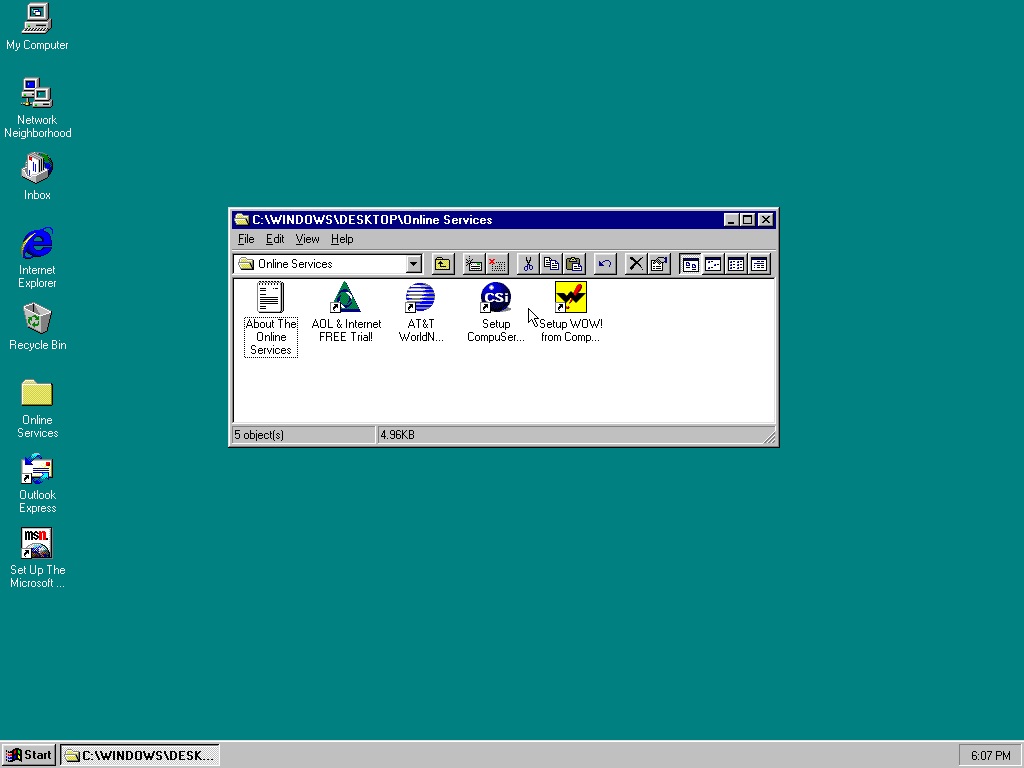Do you remember when the internet was new? We had grunge, and dial-up and the computer was a mystery.
Can you believe how far we’ve come? Now the internet rules the world.
Those who can think back, admit it, we all kinda thought… “This will never last.”
How wrong we were.
But with growth comes massive change.
Redditor ransom0374 wanted to discuss the good ole days of the internet, a much simpler time.
They asked:
“What do you miss from early internet times?”
Do you remember the time?
All that was new…
“I miss the wild unknown frontier that the internet was.”
“It seemed there was so much discovery to be had on the internet. And if you were good at the internet ‘Hackerman’ you were like a God amongst your peers.”
“It seems like there isn’t anything ‘new’ on the internet anymore. No discoveries to be made.” ~ SmallTownJerseyBoy
It had the look…
“I miss the look and aesthetic of old websites. Now everything is so clean and boring.” ~ LucianaLeak
“I personally like the designs from 2003/2004 for example. If you go on sites such as Spacehey or YTMND, they look very unique with the basic layouts of text and GIFs.”
“The moving text and how damn smooth it is, also appeals to me.”
“It looks very satisfying and futuristic. The crispy gifs always feel homely. And you could copy and paste images and icons that the site had.”
“But many modern sites, just not the “high-end” ones still allow you to do this.”
“Sites made for a Windows XP computer do look better than sites made especially for a phone.” ~ KappaMazinksy
Ads, ads and ads… I hate ads.
“Variety. There’s a popular tweet that says something like ‘the internet has turned into four websites where on each one people share screenshots of the other three.’”
“I miss when you could search a term and there would be dozens of sites dedicated to it or forums especially for it. Now it’s just ads, Wikipedia, and Reddit.”
“Oh, and not having ads shoved down your throat every time you search a term or navigate to a page.”
“I know there were pop ups and banners, which weren’t any better.”
“There was a few years there where you could Google something and half the first page wasn’t sponsored ads, that had nothing to do with what you looked up, and you could go to a website and it didn’t block the page with a full screen ad asking for your email to join their mailing list, or save 10% on their merchandise.” ~ SociallyInept2020
Use responsibly…
“How people used to treat it.”
“The internet was, not just a novelty, but an amazing piece of technology that let anyone share anything.”
“It was so wholesome and loving, with everyone still being amazed at what we could do now.”
“Now? There’s so many websites that are designed to make you angry and radicalise your beliefs.”
“It’s quantity over quality. There was a time when nobody on Reddit shared politics, when Facebook was for socialising, when YouTube was where people uploaded stuff they were passionate about.” ~ CameOutAndFarted
Silly language…
“AIM away messages saying stupid crap like ‘BRB going to get some bagel bites.’” ~ fluffy_boy_cheddar
“Don’t forget to update your personal profile with Blink 182 lyrics and the initials of your school sweetheart and some ASCII.”
“Browse for a new inappropriate buddy icon and strike up a convo with SmarterChild.” ~ YOLOswagBRO69
“It was dumb and fun.”
“That all the webpages were just random people trying to figure out HTML.”
“There really wasn’t a corporate presence at all. You could click on a button and make a cardboard hand wave at someone’s cats.”
“You could dispense a coke from a machine in some dorm. It was dumb and fun.” ~ diegojones4
Too much to know…
“The learning was endless.”
“There were almost an infinite source of information from all over the world.”
“If you wanted to find something all you had to do was search for it in Ask Jeeves or whatever and you’d find any website that had ever mentioned that thing.”
“There were more than 10 different websites. And at least it didn’t feel like I was being forced to sign up for a subscription after every click.”
“There were so many fun, cute stores to shop. Now it feels like everyone dresses and decorates the same.”
“I miss a lot of things about the early internet. I’m probably wrong, but it just felt safer than it does now?” ~ thatgirlfromthething
Let’s chat
“AOL and Yahoo! chatrooms.”
“And the Population Zero forum (I think it was a forum). It was for a local band that attended Orange Glen High School in Escondido, California.” ~ Reddit
When times were good…
“I was in my late teens when the internet was becoming accessible to everyone.”
“Our one household computer was in the kitchen & facing in a way so anyone coming in could see your screen.”
“I remember looking at someone’s website and my Dad passing by to get something to eat, asking me if the person on the website was my friend.”
“I miss those old days! The internet seemed endless & friendly.” ~ LusciousofBorg
Now it’s a business…
“I miss when streaming was a hobby and now everyone wants to make it a career.”
“Meanwhile for every streamer that makes a living, there’s tens of thousands with 0 viewers, or 1 if they’re logged into their own stream.” ~ Shadow_Bannedit
Crazy at my fingertips…
“The pure unadulterated wildness of it. This was the first video I was ever sent. Blew my damn mind. Lol.”
“It was funny, crass and anti-establishment. It was crap my parents wouldn’t, in a million years, let me watch.”
“But here it was, unrestricted and at my fingertips.”
“One thing folks born with the internet will never get to experience is that moment of pure joy when something as simple as a low quality and crass cartoon just blows your damn mind because of all the POSSIBILITIES it represents.” ~ Vanviator
All the popular kids…
“I can’t remember what it was called, but Yahoo had this great music video program where it showed popular artists, and some very unknown folks.”
“I discovered some of my favorite artists having it play in the background all the time.” ~ AtheneSchmidt
Oh, the good old days—they were wild and fun.
The internet is our bread and butter now. Can you even imagine life without it?
Do you want to?






